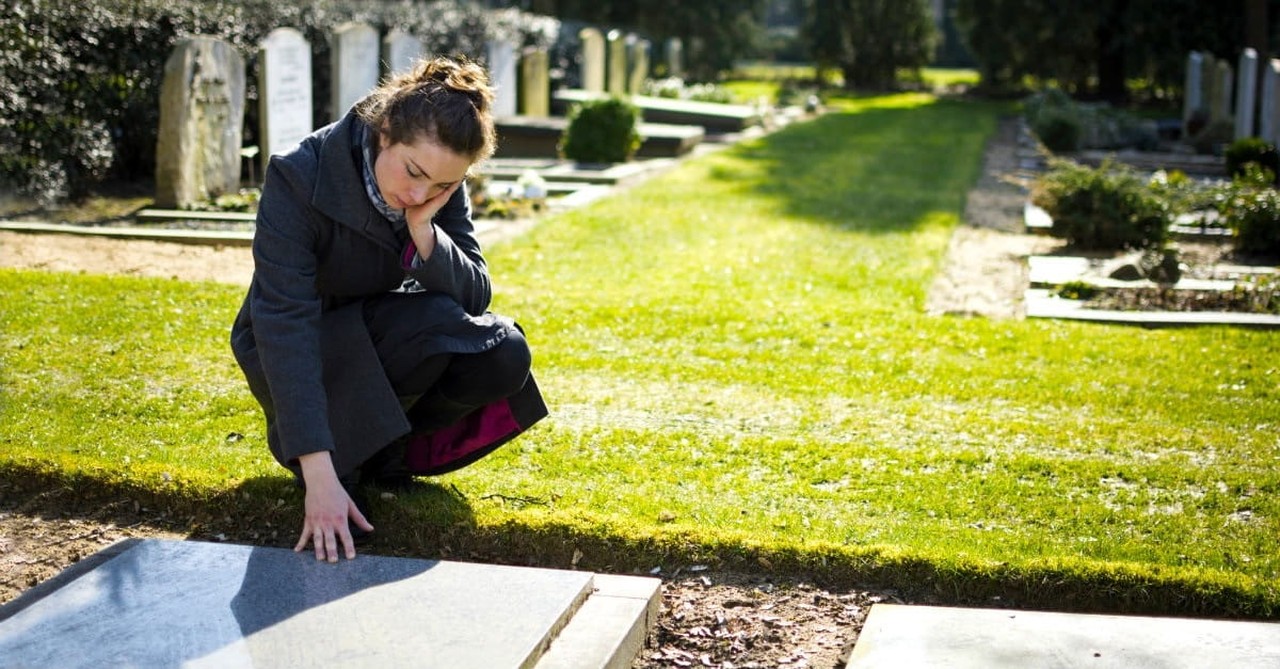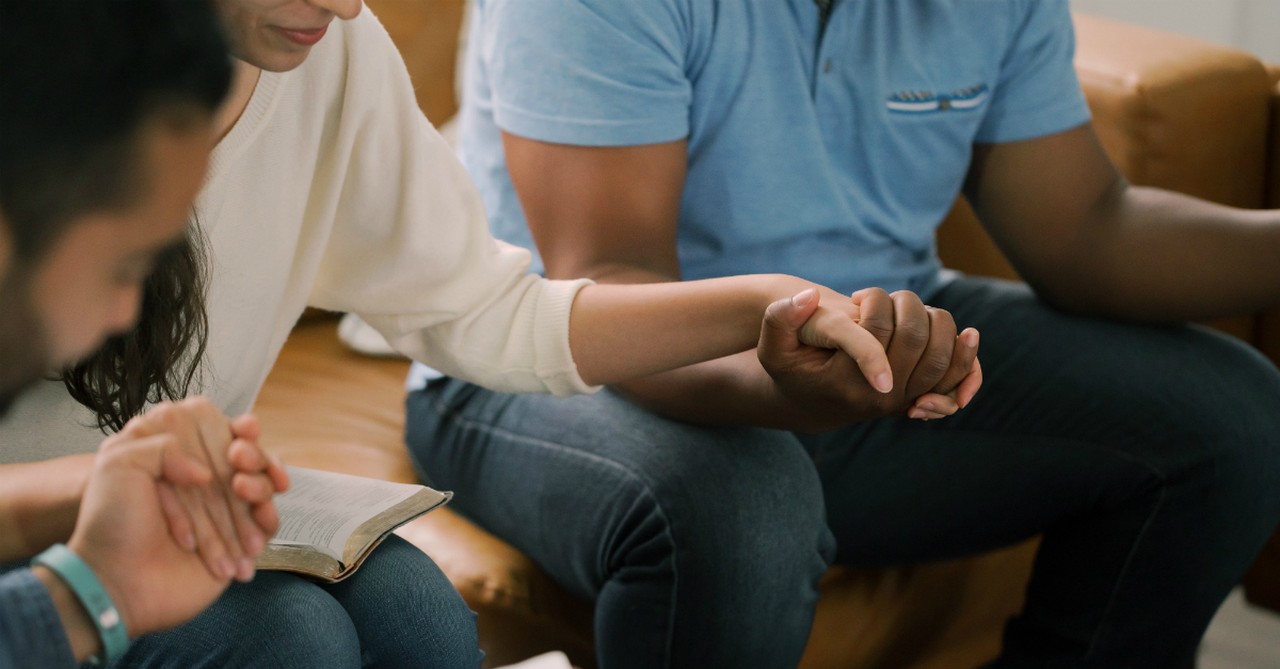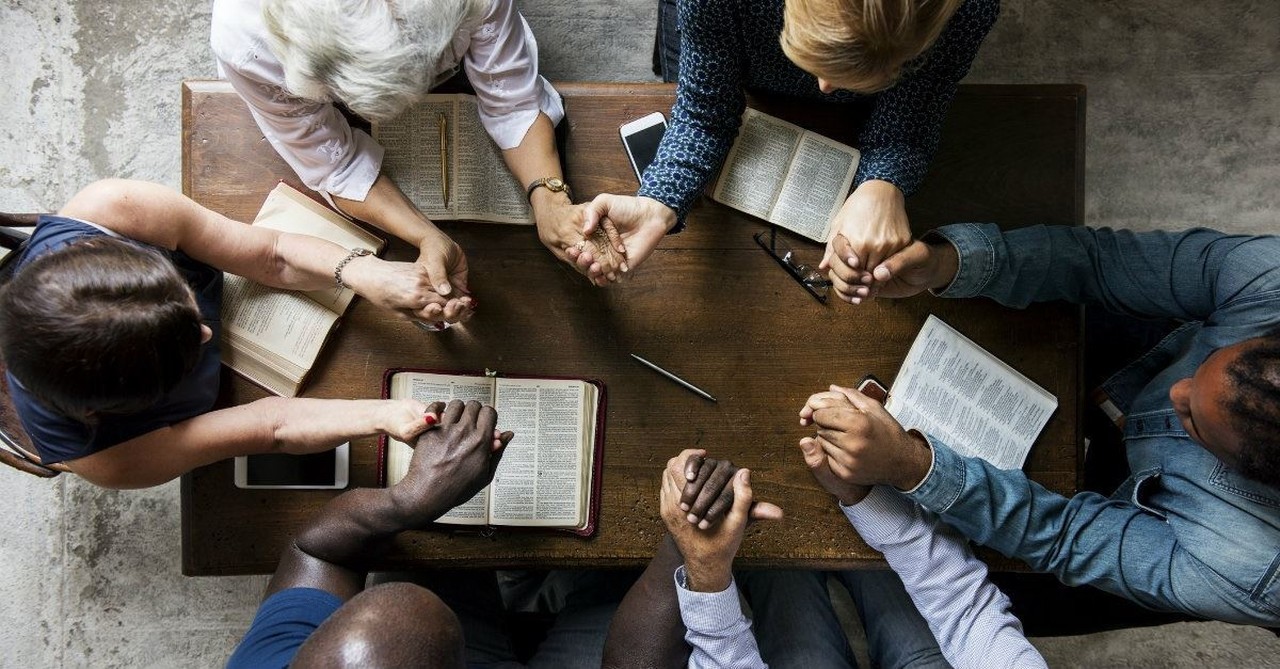Know How to Guide These 4 Types of People When Church Reopens

If you’re like most people you’re probably sick of COVID-19. You’ve had your fill of watching endless newscasts, calculating updates, and showing the ever-increasing number of infections and deaths.
You miss the company of people and are anxious to bust out of your house and find comfort in a place you find solace—being in the house of God with the people of God. However, as plans are being made to return back to “normal,” whatever that will be in the future, there are some tough realities and challenges that pastors and leaders will most likely have to deal with.
Our new normal will require addressing four types of people you may find in your church post-COVID-19.
Photo Credit: ©Sparrowstock
1. Those Who Lost Loved Ones (The Grievers)

1. Those Who Lost Loved Ones (The Grievers)
SLIDE 1 OF 5
Matthew 5:4
Blessed are those who mourn, for they will be comforted. When the doors of your church open, there is a strong possibility that there may be people in your church who have lost family members and close friends during this pandemic. For me personally, one of my best friends who is like a sister to me lost her mom during this crisis.
This will require that you be prepared to minister and encourage these people. You must be willing to acknowledge that people who have lost loved ones have not had the opportunity to have a normal grieving period.
Funerals could only have limited amounts of people, usually 10 or less and even then, they were “socially distanced.” The typical burial in many instances would allow only one or two people to attend. There was no ability to have a repass where those grieving could feel the love and support of those around them.
Add to that the harsh truth that those who suffered with this disease most likely died alone because no one was allowed to visit them.
These are the realities that those who have lost loved ones during this time are facing. For my friend, we had to have a virtual memorial service and while people showed up online to offer their love and support, there were no physical hugs, no group laughter, none of the acts of comfort we have become accustomed to when someone we love passes away.
Let’s also not forget the people who lost loved ones who did not have the virus, they had the same experience. As leaders, you have to recognize this and prepare for it.
Romans 12:15 encourages us to “Rejoice with those who rejoice; mourn with those who mourn.” One of the key words in that verse is “with.” There has been no “with” during this season. You must realize this and if needed, set up a time to allow this “with” to happen. It may be months or weeks after; but giving those who have lost a time and space to feel loved on and comforted by those around them can be a wonderful way to help them as we face our new normal.
Photo Credit: ©GettyImages
2. Those Not Ready to Return (The Wait-and-Seers)

2. Those Not Ready to Return (The Wait-and-Seers)
SLIDE 2 OF 5
Ephesians 4:2
Be completely humble and gentle; be patient, bearing with one another in love.
One of the many outcomes of the COVID-19 crisis is this truth: Just because you are ready to open up your church and gather the people together doesn’t mean everyone else is. There will be segments of your congregation that will not come rushing back into church, just because the doors are open. It’s not because they don’t love the church or the people. It’s because they are concerned about their safety and the safety of their family.
If this should happen in your church there is only one proper response to these people…grace.
Please don’t try to lay a guilt trip and make it about their faith or the lack thereof. Give people the space and the grace they need to work their way back into the flow of life.
Remember, unless you were alive in 1918 when the last global pandemic happened, no one has ever seen anything like this before. This has literally impacted the entire planet. Because of this you must have grace. Be careful to love your people through this process and don’t judge them.
We have seen a disease sweep through our society that still at this moment has no real cure or treatment. This reality means some people will respond more cautiously than others. Love them through it.
Now would be the best time to display the fruit of the spirit in Galatians 5, mainly love, patience, gentleness, and kindness.
I believe if you do this it will never be forgotten.
Photo Credit: ©GettyImages/AaronAmat
3. Those Recovered from Coronavirus (The Overcomers)

3. Those Recovered from Coronavirus (The Overcomers)
SLIDE 3 OF 5
Psalm 23:4
Yea, though I walk through the valley of the shadow of death, I will fear no evil;
For You are with me… (NKJV)
I was having a conversation with a good friend of mine who had contracted the virus. He had to be hospitalized and has since recovered. He shared with me some of the emotions he dealt with during his hospitalization and more importantly after. There were two questions he shared with me that stopped me and made me think.
1. Why me?
He began asking this question in the hospital: why did I get this virus? However, once he realized he was going to recover the question changed. It was still “why me” but it became “why did I recover and other people didn’t?”
You might think that is a strange question to ask, but many people whose lives are spared when there is great tragedy ask similar questions. If we are going to be good leaders, we should be prepared to address this question.
The people who have recovered may never ask this out loud...but understand there is a good possibility they are thinking it within themselves.
2. Will there be a stigma attached to me?
If you remember the book The Scarlet Letter, Hester Prynne has an affair with Arthur Dimmesdale. As a result, she is forced to wear a scarlet-colored ‘letter A’ on her body making her sin known to the entire community.
This letter caused people to look at her with shame. Contracting the coronavirus is not sin, yet my friend was worried that he might be viewed the same way. He wondered if people would feel comfortable being around him knowing he had this virus.
I had never thought about this until he mentioned it. In fact, I later discovered that there are people who have had the virus but didn’t tell anyone because of this same fear.
I hope these two questions hit you right between the eyes the same way it did me. Make sure your church is a safe place where people who had the virus and have since recovered are welcome.
This is truly a lead-by-example opportunity—and that’s what being a leader is all about.
Photo Credit: ©Sparrowstock
4. Those Who Can’t Return Yet (The Least of These)

4. Those Who Can’t Return Yet (The Least of These)
SLIDE 4 OF 5
Matthew 25:40
The King will reply, ‘Truly I tell you, whatever you did for one of the least of these brothers and sisters of mine, you did for me.’
Within your church there will be a segment of the population who may want to return but it is not in their best interest to do so...at least not right away. These are the people who are immuno-compromised and people with special needs or some disabilities.
I can speak to this matter because it’s personal to me. I have a son who has Down Syndrome and Autism and who has recovered from leukemia. His situation means his immune system is always a little bit lower than everyone else’s.
While he is fine to go out in normal conditions, we are hesitant to rush him back into crowds with conditions such as these. Especially because we don’t know what opening up is going to look like yet.
You may have people in your congregation just like this.
The church may be open but these might be the last group of people who will come back to church on a regular basis.
Don’t forget about these people.
It’s easy to reach out to people while everyone is quarantined at home. However, once the activity and responsibility of church, with people actually in it, starts back up again, there can be a tendency for these people to get left behind.
I hate to relate this expression but it’s like out of sight, out of mind. So, in your ministry planning, remember them. They are just as precious and just as important as everyone else. It will take work, but make sure these folks with certain special needs don’t become the forgotten ones.
Remember Jesus left the 99 sheep to go after the one. The people in this category are the one. When you remember them, you honor Jesus in the process.
Photo Credit: ©GettyImages/Wavebreakmedia
The Real New Normal

The Real New Normal
SLIDE 5 OF 5
“Normal life” going forward is going to be anything but normal for a while. I don’t know how long it will take for us to get back to pre-COVID-19 living. There are many facets of life that may never go back to our previous normal.
Our responsibility as leaders is to recognize, adapt, and serve those whom God has entrusted us with. I am not saying it will be easy, but being a leader is not always easy. It’s times like these that require you to rely on and trust in the supernatural grace and wisdom that God has made available for you.
Lean into his grace. Ask for his wisdom. Be filled with his love and compassion.
Let these be anchors of your ministry both now and going forward. The people you serve are counting on it.
Photo Credit: ©GettyImages/Rawpixel

He is the author of The Pursuit of Purpose, which helps readers understand how God leads them into his will, and the author of The Pursuit of Victory: How To Conquer Your Greatest Challenges and Win In Your Christian Life. Clarence is also committed to helping 10,000 people learn how to study the Bible and has released his first course, Bible Study Basics, to achieve that goal. To learn more about his ministry and resources, please visit clarencehaynes.com.
Originally published May 04, 2020.









